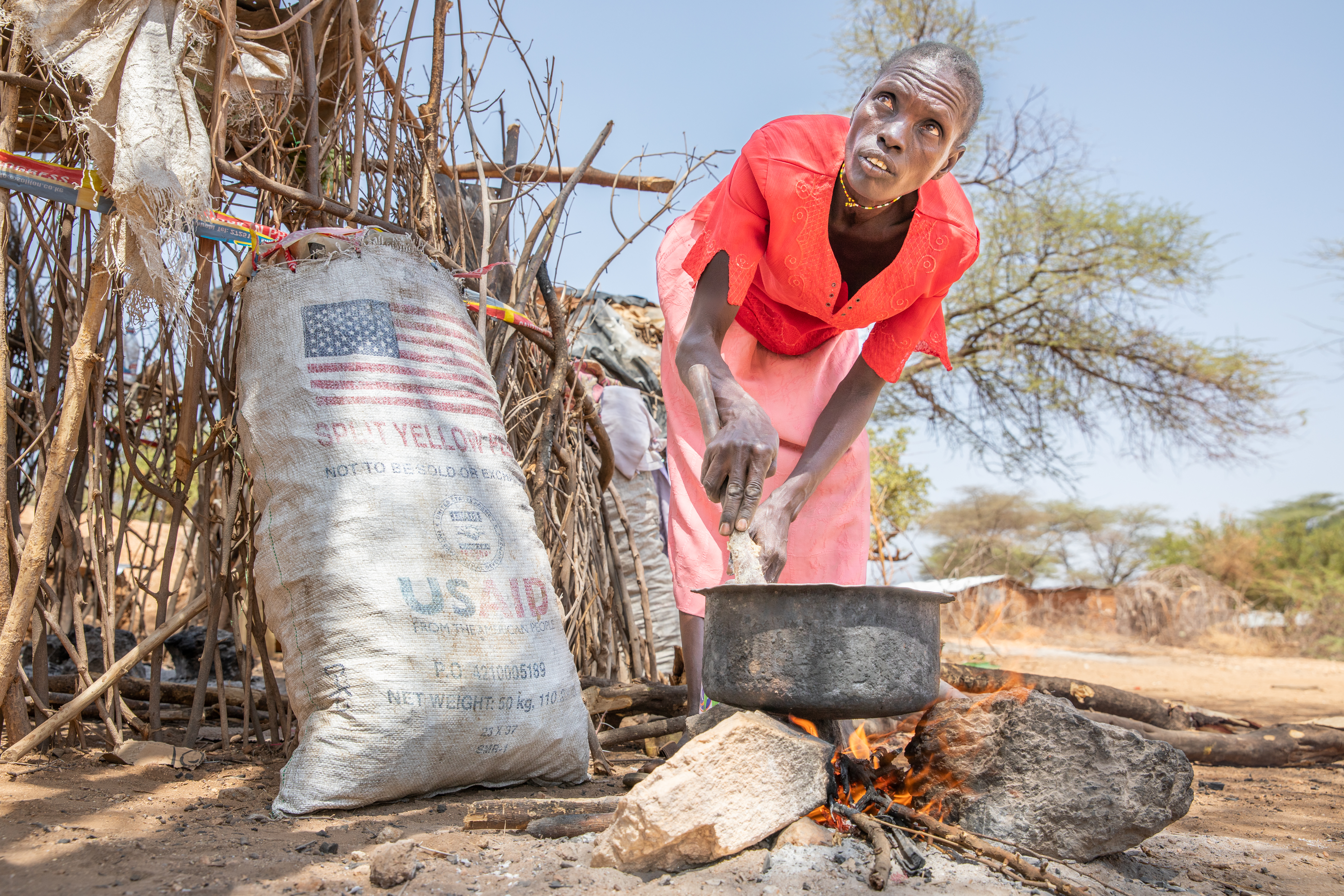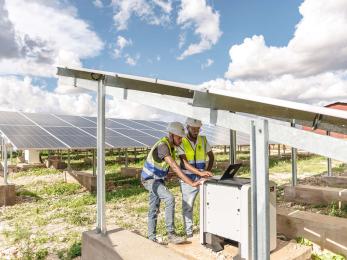Life of a girl: Solar power lights the way for Lourdes

Of all of her siblings, 15-year-old Lourdes dos Reis is the most serious. She attends a nearby public school with the dream of becoming the Minister of Education someday — but, as the oldest child living at home, she has many responsibilities in addition to her schoolwork.
Each day, with quiet determination, Lourdes collects water for the family, completes her chores and helps her mother cook. And when all that is said and done — long after the sun sets — she clicks on her solar lamp and begins her homework.
We met Lourdes in rural Timor-Leste, where more than half the population, including Lourdes’ family, doesn’t have access to electricity. Instead, many people rely on expensive, unsustainable energy sources that drain their financial resources and give off harmful emissions.
But Mercy Corps’ Energy for All program is building awareness and distribution of solar energy products in impoverished areas like Lourdes’ village, giving families like hers an affordable, safe energy alternative that helps them save money and improve their living environments.
The solar lamp her father bought through the program has a special significance for Lourdes — she now has a reliable light source to complete her studies each evening after she finishes her chores.
Follow Lourdes throughout her day and find out how solar power is lighting the way for her to have a bright, successful future.
6 a.m.

Lourdes wakes before her three siblings. Usually, 18 immediate and extended family members share their three-bedroom home, which is made of bamboo, cement, dirt floors and a tin roof.
Lourdes sweeps the floors and tidies the home before grabbing a small towel and bar of soap and walking to a nearby water spot for a bath.
6:45 a.m.

She helps her mother, aunt and cousins with breakfast. The family uses a traditional three-stone open fire in the kitchen, which in Timor-Leste is always a separate house behind the main house. Lourdes gathers bananas and eggs from the storage area, then arranges the firewood and fans a spark to start a fire.
They get two fires going because there are so many people to cook for. Soon the smoke is billowing out the window and curling up over the roof.
7:15 a.m.

It’s time for Lourdes to get ready for school. She can’t find her hairbrush so her mother helps her look around her tiny bedroom, which has one bed shared among four young female cousins.
Lourdes is in a hurry now — if she doesn’t leave soon she’ll be late for class.
7:30 a.m.

With a thin notebook in hand, Lourdes leaves the house. “Every morning I go to school with my brothers and sisters,” she says.
The walk takes about 30 minutes down a long winding road through the village. She holds her cousin’s hand and they gather neighbors and friends along the way.
Lourdes drops the younger kids at the primary school and walks five more minutes to the junior high school.
8 a.m.-4 p.m.

Lourdes joins her class of about 25 kids. They have a lesson in Portuguese grammar today.
Both of Lourdes’ parents beam with pride that Lourdes is receiving an education. “I would like all my children to go to school because I was not pushed by my parents to go to school,” her father Anenias tells us.
Anenias does carpentry and sells coffee beans to support the family. He makes $500-600 (USD) a year if the coffee harvest is good — but only $100-200 if it’s not. Lourdes’ mother, Isabel, helps pick coffee and spends the rest of her day tending the family’s home and garden.
“I push them [the children] to go to school so one day they can have something to put on their plates,” says Isabel. “Their smartness determines the size of their plates in the future. I want them to go to school so they can be smart for their own future.”
4 p.m.

As soon as Lourdes returns home, she and a few friends walk 10 minutes to the nearest water spout to collect water. “We help each other collect water,” she explains. “They help me, I help them.”
If the spout is dry, there is another waterpoint farther away, but Lourdes prefers the closer one so she doesn’t have to carry the heavy water as far.


The water spout is a metal hose that is situated at the end of a small spring. The kids play on a large tree nearby as they each gather the water their families need for the evening.
Lourdes fills six gallon-size plastic containers for the family and brings them each back to a bench outside her home’s kitchen, where they sit until they’re used for dinner. There are normally two containers leftover for breakfast, but sometimes she has to run and refill early in the morning, too.
4:30 p.m.

After dropping off the water, Lourdes picks up her homemade woven basket, straps it on her back, and collects cassava and sweet potato leaves near the house for dinner. With 18 people to feed, she has to collect a lot of leaves.
4:45 p.m.

Once back home, Lourdes heads into the kitchen to wash mugs, plates, forks and spoons for dinner. She dunks them into a bucket to wet them, scrubs them clean and rinses them in another bucket. She then stacks the clean dishes neatly on a tray and passes them to her mother.
5:00 p.m.


Lourdes helps her aunts, cousins and mother with peeling and cutting vegetables. Tonight they are cutting green beans they bought at the market and boiling the cassava and sweet potato leaves Lourdes collected from the garden.
Most of the women and young boys have already been in the kitchen for at least an hour, and the smoke is thick. It can only escape from the room through the doorway, a small window and the cracks between the room’s bamboo walls and tin roof.
5:30 p.m.

While dinner is still cooking, Lourdes sneaks some time to play hopscotch with her friends and siblings. “I like having lots of siblings because there are a lot of people to play with and help each other,” she says.
The kids giggle and talk for as long as they can, until Lourdes’s mother calls her back to the kitchen to help finish and serve the dinner.
8:30-9:30 p.m.



